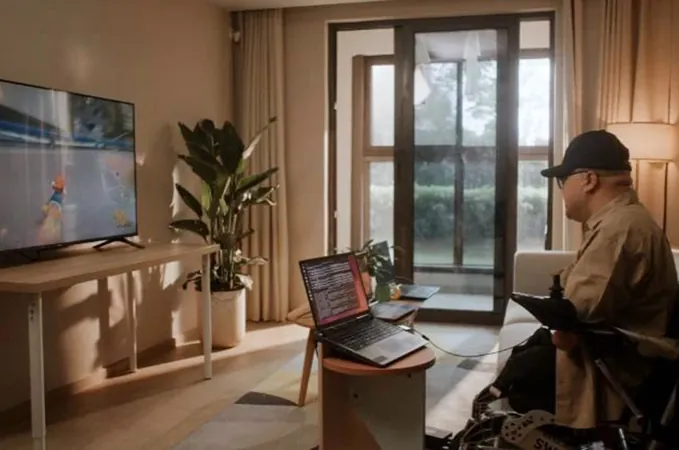
Revolutionary Breakthrough: Amputee Controls Racing Game with Brain Signals Thanks to Chinese Startup
2025-05-13
Author: John Tan
A Groundbreaking Achievement in Brain-Computer Interfaces
In an astonishing scientific breakthrough, Chinese startup StairMed Technology is making waves by enabling a quadruple amputee to control a racing game using just the power of his brain. This innovative technology is setting the stage for a new era in assistive devices, allowing individuals with significant disabilities to regain a sense of connection to digital worlds.
Pioneering Human Trials in China
Recently shared in a captivating video, StairMed is not only making headlines as the first company in China to conduct human clinical trials of an invasive brain-computer interface (BCI) but is also the second in the world to do so, following Elon Musk’s Neuralink. With this remarkable achievement, they’re showing the potential of technology to change lives.
Large-Scale Trials on the Horizon
StairMed’s founder, Zhao Zhengtuo, announced plans to escalate their efforts by initiating large-scale clinical trials aimed at involving 30 to 40 participants. Depending on the timeline for recruitment, regulatory approvals, and data collection processes, they anticipate their groundbreaking product could hit the market as early as 2028.
An Incredible Journey Begins
The first participant in this trial, who tragically lost all his limbs in an accident, underwent BCI implantation on March 25. In a remarkable feat, two ultra-thin electrodes—thinner than a human hair—were carefully inserted into his brain via a minimally invasive procedure, linked to a small implant nestled in his skull. After just a couple of months of training, he is now effortlessly controlling a computer with mere thought.
Technological Advancements and Future Plans
Zhao highlighted that StairMed’s implant is significantly thinner than existing options, requiring only a tiny five-millimeter incision in the skull. This precision procedure allows electrodes to be delicately placed within the brain tissue. Looking ahead, StairMed intends to unveil their next-generation BCI product early next year, aiming to create connections with increasingly complex external devices, including the development of language decoding capabilities.
A New Hope for Many
As StairMed forges ahead, the implications of this technology could be monumental, potentially transforming the lives of countless individuals with severe physical limitations and giving them a renewed sense of empowerment and interaction with the world.




 Brasil (PT)
Brasil (PT)
 Canada (EN)
Canada (EN)
 Chile (ES)
Chile (ES)
 Česko (CS)
Česko (CS)
 대한민국 (KO)
대한민국 (KO)
 España (ES)
España (ES)
 France (FR)
France (FR)
 Hong Kong (EN)
Hong Kong (EN)
 Italia (IT)
Italia (IT)
 日本 (JA)
日本 (JA)
 Magyarország (HU)
Magyarország (HU)
 Norge (NO)
Norge (NO)
 Polska (PL)
Polska (PL)
 Schweiz (DE)
Schweiz (DE)
 Singapore (EN)
Singapore (EN)
 Sverige (SV)
Sverige (SV)
 Suomi (FI)
Suomi (FI)
 Türkiye (TR)
Türkiye (TR)
 الإمارات العربية المتحدة (AR)
الإمارات العربية المتحدة (AR)